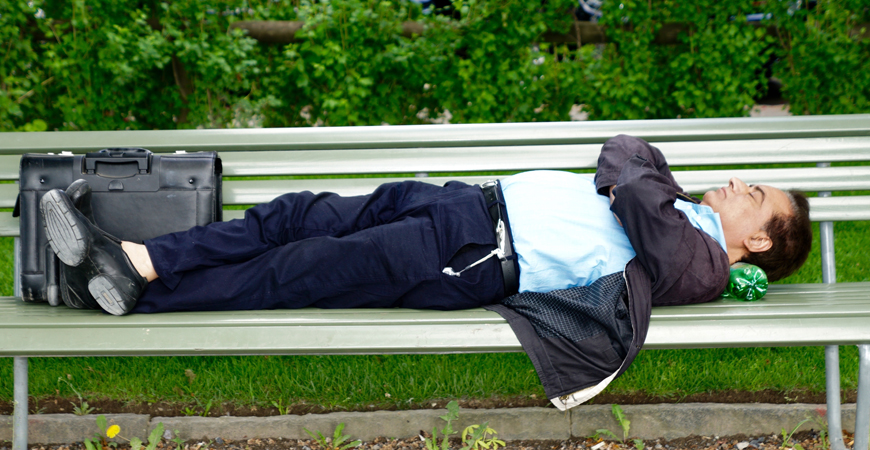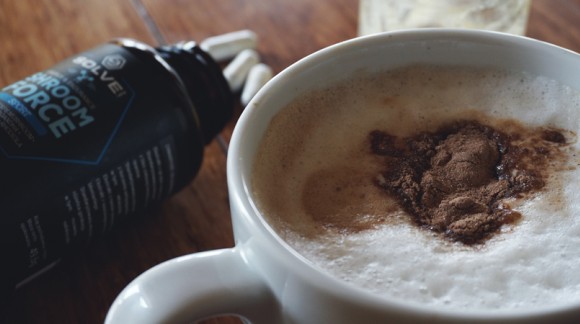Sleep meditation - circadian rythm disorders and ways to improve night recovery

Sleep and circadian rhythm disorders
Despite the growing awareness of the role of the right amount and quality of sleep, it is still one of the most neglected and often underestimated areas of health in human circadian rhythms.
It is known that you have to sleep, everyone has to sleep, but most often knowledge about sleep ends with duplicated stereotypes, such as the popular: "you need 8 hours of sleep!". The amount of sleep is just one parameter. Sleep quality is influenced by factors such as the number of times you wake up at night, how long it takes to fall asleep, and more.
Below I would like to present the essence of high-quality sleep and its direct (and indirect) impact on the functioning of numerous human physiological processes, as well as propose a few safe and practical habits that can be introduced "immediately" to optimize sleep.
"Good" and "bad" sleep
Recent scientific developments in the fields of pathophysiology or neurochemistry have developed many strategies for treating sleep disorders. Unfortunately, taking into account the still high frequency of their occurrence, I consider it necessary to build awareness among people about the relationship between "good" and "bad" sleep and other aspects of physical and mental health.
Episodes of greed, uncontrolled weight gain, morning headaches, brain fog, low energy levels, lack of satisfaction and life satisfaction - these are just some of the consequences of poor sleep hygiene and related disorders. Disturbances in the circadian rhythm, including sleep disturbances, are closely related to the development of depression and parasympathetic dominance (the state of nervous system crisis and imbalance between the somatic and autonomic systems).
Sleep disorders and brain-derived neurotrophic factor
Disturbed sleep usually means a reduction in the duration of REM sleep or a reduction in the number of REM periods, which in a healthy person should total about 2 hours a day.
The higher the relative length of the REM phase, the better you rest during sleep. The greater proportion of REM sleep is associated with a decrease in average heart rate and temperature after waking up. Moreover, the deeper you sleep, the better your physical condition the next day.
FUN FACT: Sex before bedtime will promote deeper sleep and help to inhibit neurodegradation processes in the brain. It also has a beneficial effect on BDNF (brain-derived neurotrophic factor), which plays a key role in the formation of new neurons, and protects existing neurons, while facilitating the formation of synapses (connections between individual neurons), which is essential for thinking, learning and higher brain functions.
BDNF is important not only in the process of neurogenesis and neuroplasticity. It also helps to protect delicate nerve connections from damage (e.g. as a result of reduced blood flow to the brain, traumas and strong emotional experiences or environmental toxins).
Proper sleep is important for the appropriate changes in hormone levels (e.g. the maximum secretion of growth hormone is recorded 90 minutes after falling asleep, and the peak of testosterone secretion in men is at 6.00 - 7.00). Sleep plays a regulatory role in the area of sex hormones or cortisol, regulates the HPA endocrine axis, stimulates the lymphatic system and cerebrospinal fluid to metabolize "metabolic waste", regulates the work of the hippocampus, is responsible for memory consolidation and regulates the level of most neurotransmitters of the nervous system.
So we can see that for the proper functioning of the nervous system, the functioning of the thyroid gland or the proper autoimmune response, quality sleep is simply essential.
We can start the practical support of sleep disorders (skipping advanced clinical units such as chronic insomnia) by introducing some appropriate habits.
Naps - Needed or Not?
One of the habits may be taking naps during the day, the socalled "Power nap". They can be successfully introduced in case of athletes to improve recovery (in the case of several training sessions during the day, a nap may contribute to a lower feeling of pain associated with exercise or strength training).
World Powerlifting Champion, the greatest powerlifter ever, Ed Coan, takes naps daily and says it is a key part of his recovery and training preparation.
In the publications of Dr. Koppen, we can read that "in the past, those generals who could fall asleep won. Both Alexander the Great and Napolen were known to nap before battles.
The key to a successful nap is to make sure it lasts 10 to 30 minutes. Scientific literature confirms these numbers. When someone sleeps for more than 30 minutes, they are too dull to properly function mentally.
Most importantly, the function of a nap is to achieve more efficient sleep at night, so it should not be a "compensation" for lost sleep, especially when the person has had the opportunity to sleep but has not slept (e.g. by not maintaining bedtime hygiene, using a smartphone / laptop late ).
While they can be beneficial in sports, people suffering from insomnia should certainly avoid them (naps during the day can worsen insomnia at night!).
So if you are one of those people whose daytime naps don't help you sleep at night, try using auto-relaxation techniques, breathing training, or autogenic training instead of naps (it's important to stay aware of these activities).
7 ways to optimize your sleep
It will also be a good idea to introduce the so-called "Beneficial sleep habits", that is, the inclusion of activities that improve sleep hygiene.
Stimulus control is one of the most effective methods of non-pharmacological support of sleep disorders and increasing its efficiency (average sleep efficiency is the ratio of sleep time to the time spent in bed). This is to improve the physiological processes that regulate sleep and to control external and internal stimuli that may disturb sleep.
In practice, these will be habits based on improving the mechanisms of sleep homeostasis and using the natural circadian rhythm:
1. Get up at the same time every day, no matter what time you went to bed (you will avoid the negative effects of the "social jet lag" phenomenon)
2. Use the bed only for sleep and sex, and avoid doing other things in it
3. Provide peace, quiet, low temperature and darkness in the bedroom (extreme temperatures disturb sleep)
4. Exercise regularly and be physically active (but preferably no later than 2 hours before falling asleep)
5. Do not check notifications on the phone / time on the clock at night (it can cause unnecessary fear of insomnia)
6. If you are worried about silence, try setting some quiet music below the hearing threshold (allowing you to recognize words), this will allow your thoughts to flow more freely and calm down before going to bed
7. Go to bed only when you are sleepy (if you don't fall asleep within 20 minutes, get out of bed, move to another room and do something relaxing, go back to bed when you feel sleepy again, repeat the above steps until you feel sleepy again. when you don't fall asleep).








